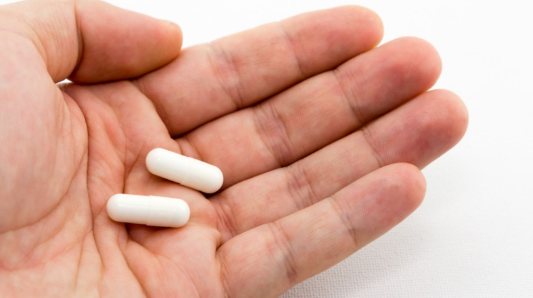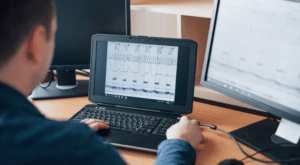Can I beat a lie detector test?
This is perhaps the most frequently asked question by potential polygraph examinees. Simply put, it’s nearly impossible to beat a lie detector test conducted by a duly credentialed examiner. However, that assertion hasn’t stopped many examinees from trying.
People deploy various tactics in their vain attempts to beat polygraph tests. These practices constitute what’s known within the polygraph community as countermeasures.
Now, countermeasures may be physical (such as lip biting), mental (like stimulating intense thoughts), and pharmacological (such as using anti-anxiety medications).
Xanax is one of the most commonly used drugs by polygraph examinees seeking to cheat the system, thanks to its calming effects. But can this medication alter lie detector test accuracy?
What Is Xanax?

Xanax (alprazolam) is a popular anti-anxiety and anti-depressant medication. Many healthcare providers prescribe the drug for treating anxiety disorders, including panic attacks, post-traumatic stress disorder (PTSD), and obsessive-compulsive disorder (OCD).
Xanax is effective against depression, too. And due to its remarkable calming properties, you could also administer it at bedtime to shorten sleep onset time.
However, not all Xanax medications in circulation are available by prescription. Various forms of the drug (including potentially harmful synthetic imitations) are accessible on the black market.
Since the drug is highly touted for its mellowing effects, many wonder if it might help beat the polygraph test. After all, lie detector tests are intense moments, and any soothing intervention would be welcome.
How Does Xanax Work?
Xanax’s calming properties are undeniable. In fact, multiple studies have ranked it among the most effective medications for panic attacks.
Xanax exerts its influence on the Central Nervous System (CNS). It notably suppresses the stress hormone cortisol, while activating the signaling of gamma aminobutyric acid (GABA).
An increase in GABA levels causes relaxation. The neurotransmitter lowers brain activity, suppressing racing thoughts while inducing overall calmness.

What Makes Xanax A Popular Pharmacological Countermeasure?
Since polygraphs are inherently stressful, some people believe that taking Xanax may help them remain calm throughout the questioning.
Note that motivations vary.
For a guilty suspect, using pharmacological countermeasures like Xanax is a direct attempt to cheat the test and evade the consequences of their actions. However, an innocent examinee may administer the drug as a way to minimize the risks of false positives.
Xanax is a muscle relaxant, too. The drug can ease muscle tension, further enhancing relaxation for polygraph examinees.
Some Xanax users also report transient memory loss and diminished feelings of hostility. For those trying to avoid retraumatizing themselves, the drug may seem like the perfect solution.
Can Taking Xanax Alter Polygraph Accuracy?
Polygraphs don’t measure stress and anxiety. They track changes in certain physiological functions, such as respiration, perspiration, heart rate, and blood pressure.
In fact, mounting evidence suggests that anxiety cannot alter the accuracy of lie detector tests. That alone negates the whole idea of taking anti-depressants ahead of a polygraph exam.
Now, it’s important to underscore that Xanax plays some role in reducing respiration, heart rate, and blood pressure. Those properties make it just the right drug to administer before taking a polygraph exam.
However, an experienced polygrapher will conduct preliminary testing to record your physiological reactions. This becomes your baseline data and serves as the reference point for analyzing your responses to the actual in-test questions. This all happens in the same session.
To infer deception, examiners rely on deviations from your physiological baselines rather than your general mental state.

Can Examiners Detect Xanax Use?
Taking Xanax is one of the numerous polygraph countermeasures. And like all others, it’s remarkably easy to detect.
Note that the polygraph machine records your physiological reactions to each question in real time.
If you deploy a countermeasure, an experienced examiner will instantly notice suspicious recordings. The examiner will then confront you about it, causing you to lie.
This lie would elicit an even stronger physiological response since it was unexpected.
If you admit to using Xanax, there are two scenarios. You may fail the test outright or do a retest once you’re sober.
What If I’m Legally Using Xanax?
There’s little to worry about if you have a Xanax prescription. In fact, your examiner would already be privy to that information.
Part of preparing for a polygraph test entails asking examinees about their overall health and current drug use.
If you’re using Xanax, ensure you divulge this information ahead of time. That’s regardless of whether you started taking the medication just hours before a polygraph test.
What Are Other Consequences Of Xanax Use?
Like most anti-depressants, Xanax has side effects. Common adverse reactions include shallow breathing, weak or elevated heartbeat, and dilated pupils.
Most people will weather these effects when administering prescription Xanax. But if the motivation is to pass a lie detector test, you’re likely to overdose on the drug and suffer more severe adverse reactions.
This will cause you to fail a lie detector test even faster.

Debunking the Misconceived Correlations Between Xanax and Polygraph Accuracy
Xanax is undoubtedly one of the most effective anti-depressants. But contrary to popular misconception, taking this drug ahead of a polygraph exam will not make you pass the test.
Lie detector tests don’t measure anxiety levels. Rather, they gauge the level of arousal in involuntary physiological reactions, which are difficult to manipulate.
The simple advice is – don’t use Xanax ahead of a polygraph exam. If you must, ensure you’re administering the drug for therapeutic reasons rather than to beat a lie detector test.






